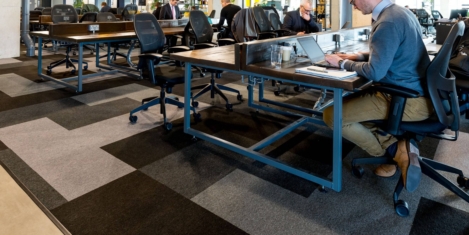July 30, 2018
The satisfaction of self-employed people depends on skills development rather than business growth
 Developing skills and knowledge is more important for self-employed people’s sense of career progression than increasing their rate of pay, a new report by IPSE (the Association of Independent Professionals and the Self-Employed) and the IPA (the Involvement and Participation Association) claims. The report, Working well for yourself: What makes for good self-employment?, surveyed 800 people across the country about what constituted ‘good work’ for them. First of all, it found that work satisfaction levels are remarkably high among the self-employed. This reinforces the findings of a 2015 CIPD Employee Outlook survey, which showed that general work satisfaction is higher among the self-employed (81 percent) than employees (61 percent).
Developing skills and knowledge is more important for self-employed people’s sense of career progression than increasing their rate of pay, a new report by IPSE (the Association of Independent Professionals and the Self-Employed) and the IPA (the Involvement and Participation Association) claims. The report, Working well for yourself: What makes for good self-employment?, surveyed 800 people across the country about what constituted ‘good work’ for them. First of all, it found that work satisfaction levels are remarkably high among the self-employed. This reinforces the findings of a 2015 CIPD Employee Outlook survey, which showed that general work satisfaction is higher among the self-employed (81 percent) than employees (61 percent).













 Sexual harassment in the workplace is widespread and commonplace, with unwanted sexual behaviours such as sexual comments, touching, groping and assault seen as an everyday occurrence and part of the culture in workplaces, and the Government, regulators and employers are failing in their responsibilities to tackle the problem says an influential group of MPs. Employers and regulators have ignored their responsibilities for too long, found the Women and Equalities Committee following a wide-ranging six-month inquiry and often legal protections are not available to workers in practice. The Committee found that despite 40 percent of women and 18 percent of men having experienced unwanted sexual behaviour in the workplace there has been a failure to tackle unlawful behaviours, despite the Government’s obligations under international law. The report calls on Government to focus on five priorities to put sexual harassment at the top of the agenda for employers.
Sexual harassment in the workplace is widespread and commonplace, with unwanted sexual behaviours such as sexual comments, touching, groping and assault seen as an everyday occurrence and part of the culture in workplaces, and the Government, regulators and employers are failing in their responsibilities to tackle the problem says an influential group of MPs. Employers and regulators have ignored their responsibilities for too long, found the Women and Equalities Committee following a wide-ranging six-month inquiry and often legal protections are not available to workers in practice. The Committee found that despite 40 percent of women and 18 percent of men having experienced unwanted sexual behaviour in the workplace there has been a failure to tackle unlawful behaviours, despite the Government’s obligations under international law. The report calls on Government to focus on five priorities to put sexual harassment at the top of the agenda for employers.
 At the risk of stating the obvious, with the Met Office suggesting temperatures could reach their peak on Friday (27 July) in some areas of the UK, Britain’s largest employer organisation is encouraging companies to consider ‘a range of measures to keep employees comfortable during the heatwave’. Matthew Fell, CBI Chief UK Policy Director, said: “While the current hot spell has provided welcome fillip for consumer-facing sectors, large numbers of employees are feeling the heat as they carry out their day-to-day tasks, especially those working outdoors. Responsible employers take the welfare of their employees very seriously, particularly during this unusual weather. Companies can help keep their employees cool by considering a range of measures, from flexible working to help those with punishing commutes to relaxed dress codes, so staff feel more comfortable in their place of work. Ultimately a common sense approach is needed, as some employees will have less flexibility than others, for example those wearing safety equipment on construction sites. In all cases, staff should have easy access to drinking water as temperatures soar to help keep them healthy and productive.”
At the risk of stating the obvious, with the Met Office suggesting temperatures could reach their peak on Friday (27 July) in some areas of the UK, Britain’s largest employer organisation is encouraging companies to consider ‘a range of measures to keep employees comfortable during the heatwave’. Matthew Fell, CBI Chief UK Policy Director, said: “While the current hot spell has provided welcome fillip for consumer-facing sectors, large numbers of employees are feeling the heat as they carry out their day-to-day tasks, especially those working outdoors. Responsible employers take the welfare of their employees very seriously, particularly during this unusual weather. Companies can help keep their employees cool by considering a range of measures, from flexible working to help those with punishing commutes to relaxed dress codes, so staff feel more comfortable in their place of work. Ultimately a common sense approach is needed, as some employees will have less flexibility than others, for example those wearing safety equipment on construction sites. In all cases, staff should have easy access to drinking water as temperatures soar to help keep them healthy and productive.”




















July 11, 2018
A beauty industry veteran makes the case for corporate wellness
by Leena Jain • Comment, Wellbeing, Workplace design
(more…)